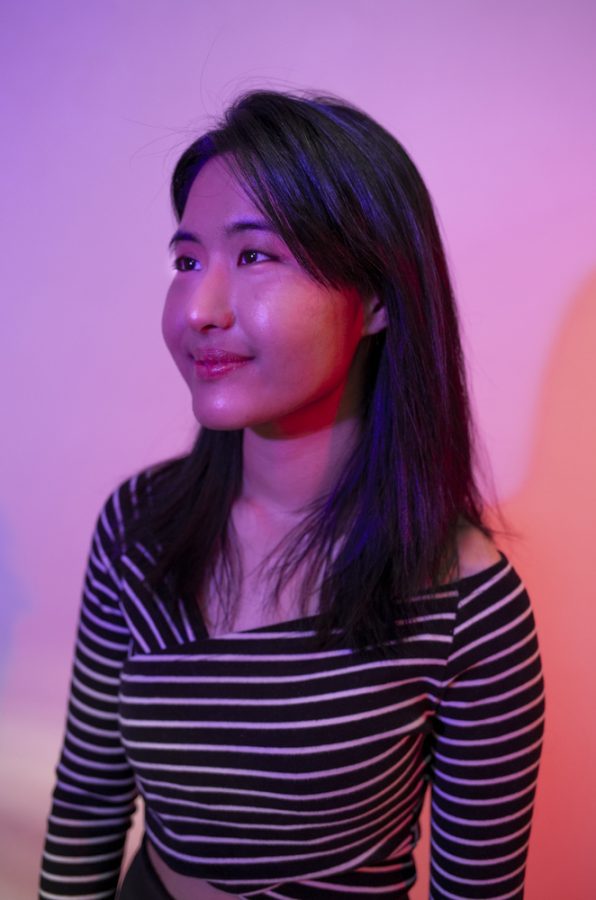Inside her East Village apartment, Aree Worawongwasu sat cross-legged on her bed. Social justice posters hide her white walls and the typography yells phrases like “not your fetish” and “decolonize, indigenize.” We, two Asian women, faced each other with three tarot cards, pulled from a deck tailored to Asian-Americans, laid out between us. Aree sometimes looks to these cards to ground herself, but on that day, she sought to help me unpack my uncertainty. The three cards before us symbolized my past, present and future, respectively, and each one had an illustrated image and featured a description on the opposite side. I read aloud the card representing my past, the ghost card, which ended with the question: “How have the forces of history brought you to this moment?”
As we talked through possible answers, Aree mentioned how she personally grapples with this same question.
“For a lot of [Asian-Americans], we’re told to forget the past that’s behind us — that in order to assimilate, live and survive, we forget that our families had been displaced in some way,” she said. “But then sometimes I think, ‘What am I forgetting’ and ‘How could I have forgotten?’ I feel unsettled sometimes and I try to think back to that.”
Longing for what has slipped away lies central to Aree’s passion for social justice and her pursuits at NYU as a scholar and activist. Though Aree grew up in Bangkok and her entire family has been in Thailand for generations, she’s not ethnically Thai — she is a combination of Teochew Chinese, a group affected by a diaspora, and Mon, a people indigenous to the eastern delta region of Myanmar. Her father’s Mon ancestors were of those who came to Thailand as refugees to escape the oppressive Burmese regime over Mon lands. Aree traces this displacement to about five generations ago.
“It’s hard to trace back these histories and that’s been a side project for me — to just do oral histories of my family,” she said.
Despite her transnational background, she fully embraces her identity as Asian-American — not in the sense of citizenship but rather in its original meaning when the term was conceived in the 1960s. Then, “Asian-American” was a unifying, inclusive term across Asian ethnic groups in the United States. that signified solidarity against imperialism and racism.
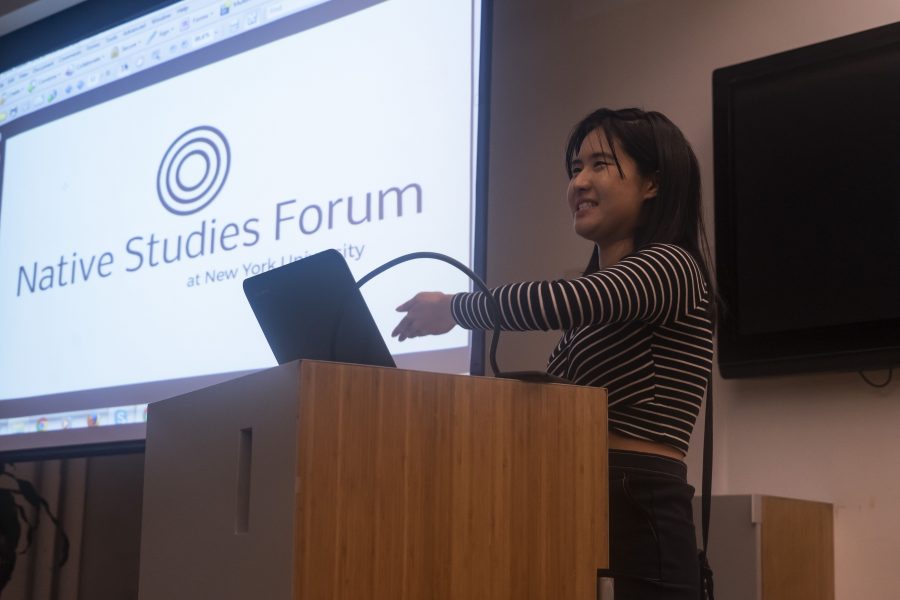
Ever since coming to New York, Aree spends most of her time away from her family and she speaks very fondly of them, with a gentle cheerfulness that’s unafraid of turning into earnest laughter. Her father is an orchid farmer, tending to a farm located an hour away from Bangkok.
“He would bring the orchids back home and put them on the rooftop,” she said. “He still brings them back from the farm and sings to them really badly off-key.”
As for the orchids that wouldn’t sell, she would bring them to school to give to her friends. For Aree, orchids seem to be a sort of cultural touchstone, emblematic of her upbringing. Growing up, she remembers loathing visits to the countryside when she would have to help her father on the farm, which she now cherishes.
“Now that I’m older and reading more about indigeneity and land reclamation, I’m much more interested in farming,” she said. “But now my dad is like, ‘Where was this interest in farming when you actually worked on the farm?’”
Apart from her father’s farm, Aree also has a profound, heartfelt relationship with food. Like many Asians, she deems food as one of the richest, most robust forms to communicate love — food, in one encounter, simultaneously carries culture, memory and someone’s care. In her own words, “food is a love language.” Aree recalls her grandmother’s hor mok, a Thai steamed fish custard wrapped in banana leaves. When Aree was still living back home, she would come downstairs to the kitchen and see that her grandmother made hor mok for her.
“[My grandmother] wouldn’t announce it either, it would just be like a special surprise,” she said.
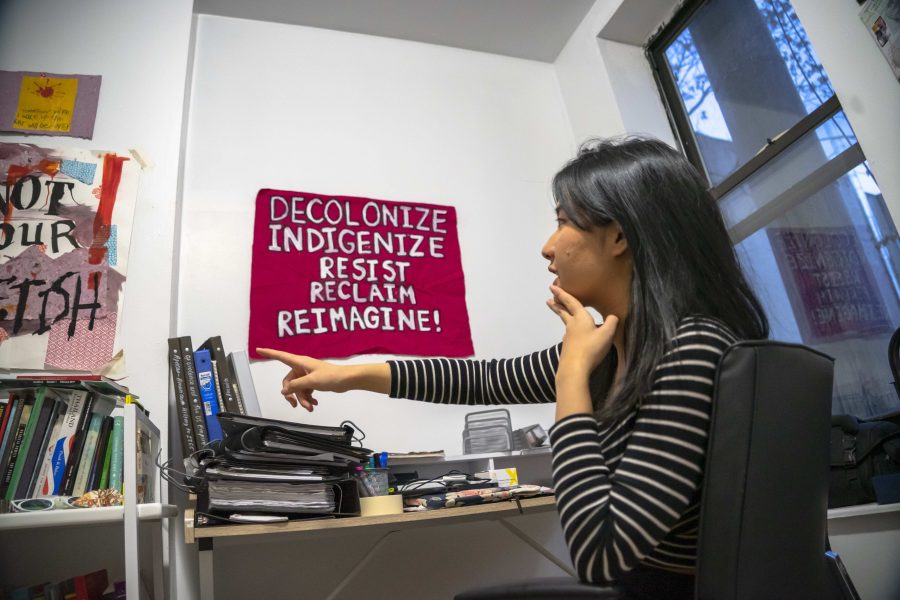
Now in the United States, Aree is in her fourth year at NYU. Her Gallatin concentration, “Decolonization,” and her minor in Asian/Pacific/American Studies are both deeply rooted in her cultural and ethnic identity. To Aree, her academics are not just a scholarly pursuit — they’re a starting point for action. Aree has been an activist since high school, starting in environmental justice, and now organizes on campus with Decolonize This Place, the No New Jails campaign and NYU Sanctuary. In the spring of 2017, she co-founded NYU Asian American Political Activism Coalition, a club on campus that aims to “politically educate and mobilize Asian-American and Asian diaspora students at NYU for our collective liberation.” Aree has been leading as president of APAC ever since it became recognized as a club the following fall.
Through her curriculum on indigeneity and Asian-American history, Aree historicizes herself — her study continuously gives her insight on how to interpret the present and mobilize for the future. Assistant Professor Dean Saranillio, one of Aree’s mentors within the Social and Cultural Analysis department, noticed how she would take knowledge from class and directly apply it to herself, a practice that gives relevance and urgency to what he teaches.
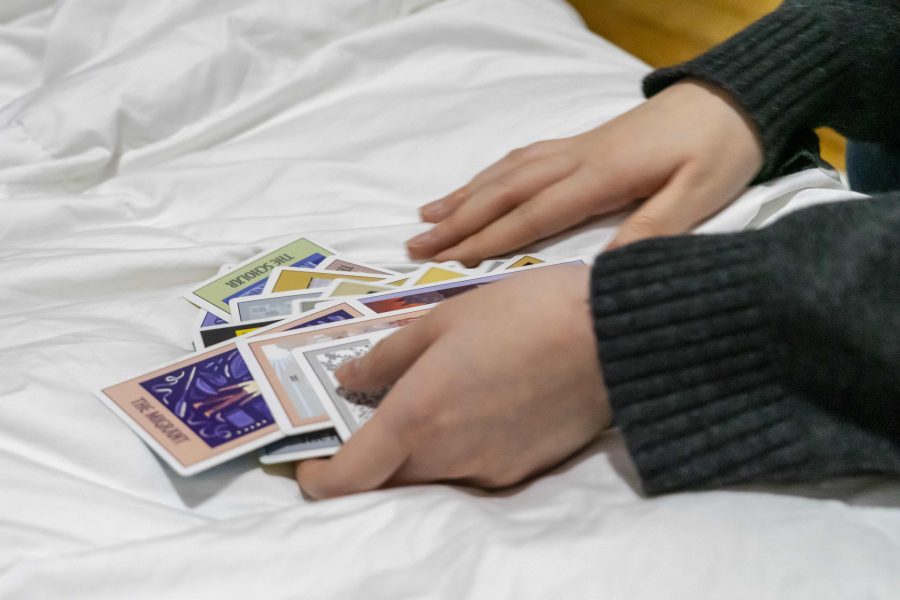
Outside of class, Aree regularly visits Saranillio during his office hours. When trying to recall what they talk about, Saranillio didn’t know where to start since their conversations are expansive, ranging from concepts discussed in class to Aree’s extensive organizing work.
“I’ve always been impressed with the ways in which she wholeheartedly pursues not just what she studies but also what she organizes,” he said. “I think a lot of that is her own Mon identity. For a lot of indigenous peoples, decolonization is about survival.”
A former student activist himself, Professor Saranillio is familiar with how bruising and difficult organizing can be and sees his office as a place where Aree can decompress. Activism requires resilience — to vigilantly react to injustice regardless of discouraging setbacks along the way.
“The anger is really soul-sucking in many ways,” Aree said. “What’s been important for me is having a support system and friends who I can talk to about it.”
Through her activism work, Aree has made some of her closest comrades and friends and part of that is because she centers her work around building relationships. NYU graduate student and NYU Divest member Lola Jusidman met Aree last year through NYU Sanctuary meetings and the Governance Council for Minority and Marginalized Students. They became much closer this past summer after attending a talk together on the hurricanes in the Caribbean. Aree would eat with Jusidman when she cooked for shabbat, after discovering that they lived in the same neighborhood. Now, their friendship is characterized by depth — they relate to one another by discussing activism, academia and their lives, ultimately redefining their relationship as something much larger than themselves.
“[Aree’s] not just thinking about technologies, programs, policies or structures in the way I do,” Lola said. “She also is really effective at profoundly changing people.”
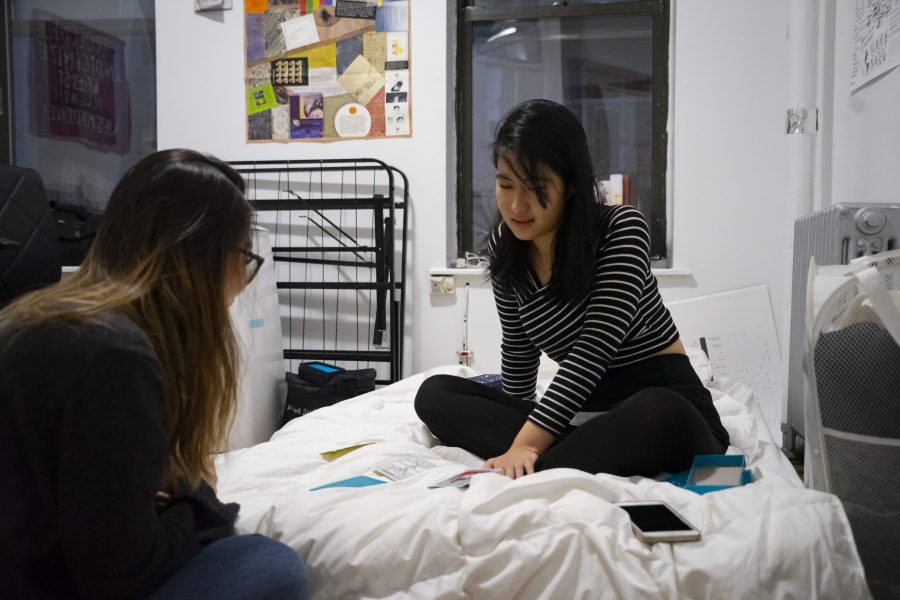
As someone who is entirely dedicated to her work and the people she works with, Aree finds herself consoling her friends dealing with problems and traumas. But she admits that some days, taking care of others is emotionally draining for her. And this isn’t an easy confession for her to make either because she feels immensely grateful to know that she’s trusted within activist spaces.
Since activist spaces especially encourage vulnerability, Aree has to manage a delicate balance between helping others and taking care of herself. She aims to prioritize self-care as she struggles with mental illness. Even though mental health is an everyday struggle for her, Aree reminds herself to practice self-compassion.
“I’m constantly reminding myself that it’s not a linear process and that I need to be patient with my healing,” she said.
But nothing stops her from thinking about her ambitions for decolonization and being mindful of how she treats herself and how she relates to other people and the land she’s on.
“It’s important for me to always be thinking about how do I not only study decolonization but how do I turn it into an everyday practice.”
Email Janice Lee at [email protected]. A version of this article appeared in the Thursday, Dec. 6 print edition. Read more from Washington Square News’ “Influential 2018” special issue.


























































































































































